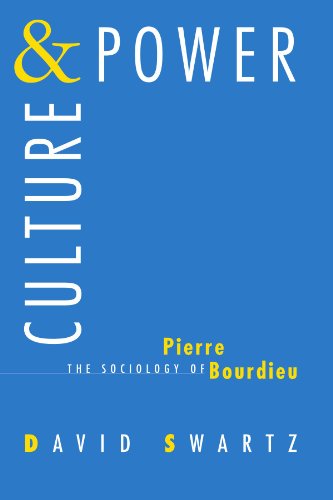- Início
- A modern course in statistical physics ebook
- In the Cage: A Guide to Sigil (AD&D Planescape)
- Modern Nutrition in Health and Disease book
- Note Reading Studies for Bass book
- Asymptotic theory for econometricians pdf
- Unit roots, cointegration, and structural change
- Introduction to Mechatronics and Measurement
- ADempiere 3.4 ERP Solutions pdf free
- Mfc Programming With Visual C++ 6 Unleashed ebook
- Modern Magnetic Materials: Principles and
- Philosophy of Mind: A Guide and Anthology epub
- Solid State Electronic Devices, 6th Edition pdf
- WIN32 API Programming with Visual Basic download
- Water-Based Paint Formulations, Volume 3 pdf
- Afro-Cuban Bass Grooves book download
- Problems in General Linguistics (Miami
- Optimizing compilers for modern architectures
- Building Search Applications: Lucene, LingPipe,
- Set theory and metric spaces pdf download
- RTP: Audio and Video for the Internet epub
- Satellite technology: principles and applications
- Schaum
- Learning OpenCV: Computer Vision with the OpenCV
- Marketing Strategy and Competitive Positioning
- Who Classification of Tumours of the Central
- ELINT: The Interception and Analysis of Radar
- Forensic Computing. A Practioners Guide book
- Strategic Applications of Named Reactions in
- Python 3 Das umfassende Handbuch pdf free
- Potential theory in gravity and magnetic
- Heat Exchanger Design Handbook download
- Optical Networking for Dummies ebook
- Martingales and Markov chains: solved exercises
- I Am Number Four: The Lost Files: Six
- I Am Number Four: The Lost Files: Six
- Pattern-Oriented Software Architecture Volume 3:
- Complete PCB Design Using OrCAD Capture and PCB
- The Color of Distance ebook
- Introduction to Montague Semantics pdf
- An Introduction to Stellar Astrophysics book
- The Software Project Manager
- Programming: Principles and Practice Using C++
- Natural Language Understanding (2nd Edition) pdf
- GNSS - Global Navigation Satellite Systems: GPS,
- Harmony & theory: [a comprehensive source for all
- Water-Insoluble Drug Formulation, Second Edition
- Symbolic Interactionism: perspective and method
- Critical state soil mechanics via finite elements
- The Complete Idiot
- Practical Algorithms for Programmers pdf free
- Pipeline Pigging Handbook ebook download
- Markets in profile download
- Introduction to Neural Networks for C#, 2nd
- Advanced Grammar in Use With answers pdf download
- The Art of Computer Virus Research and Defense pdf
- H.G. Wells - Complete Works download
- OCA/OCP Oracle Database 11g All-in-One Exam Guide
- Hypersonic and high temperature gas dynamics epub
- Solar Energy Engineering: Processes and Systems
- COMPUTER-INTEGRATED MANUFACTURING book download
- STL Tutorial and Reference Guide, The: C++
- A Textbook of Medical Instruments ebook
- Vocabulary matrix: understanding, learning,
- Merger Arbitrage: How to Profit from Event-Driven
- Introduction to Bioinformatics download
- Power System Economics: Designing Markets for
- CPE practice test ebook download
- The Teacher
- Mathematical Statistics: A Decision Theoretic
- An Introduction to Stellar Astrophysics epub
- Encyclopedia of machine learning pdf download
- Architect
- The Elements of Typographic Style pdf
- Drum Programming: A Complete Guide to Program and
- Trade Your Way To Financial Freedom 2ND Edition
- Super Memory - Super Student: How to Raise Your
- Lean Lexicon 4th Edition download
- Why We Get Sick:: The New Science of Darwinian
- Aspects of multivariate statistical theory book
- ASM Handbook: Volume 13B: Corrosion: Materials
- Atomic And Electronic Structure Of Solids download
- The King Never Smiles: A Biography of Thailand
- Intermediate Vocabulary Games book
- Fibonacci
- Culture and Power: The Sociology of Pierre
- Justice: What
- Descriptive Translation Studies - and Beyond
- Optimization by vector space methods pdf download
- Riemannian geometry, a beginner
- Backup & Recovery: Inexpensive Backup Solutions
- Oracle Wait Interface: A Practical Guide to
- Physics Of Radiology pdf free
- Name Reactions and Reagents in Organic Synthesis
- Sukhoi Su-27 Flanker - Walk Around No. 47 book
- Creating Interactive Fiction with Inform 7 epub
- Handbook of Optical Constants of Solids ebook
- After the Trade Is Made: Processing Securities
- Density functional theory of atoms and molecules
- Density functional theory of atoms and molecules
- Mechanics of Composite Materials download
- Ascorbate: The Science of Vitamin C pdf
- Discrete Random Signals and Statistical Signal
- Principles of nuclear magnetic resonance in one
- Practice Makes Perfect Advanced English Grammar
- ASM Handbook: volume 4: Heat Treating book
- Contatos
Total de visitas: 15265
Culture and Power: The Sociology of Pierre
Culture and Power: The Sociology of Pierre Bourdieu. David Swartz

Culture.and.Power.The.Sociology.of.Pierre.Bourdieu.pdf
ISBN: 0226785955,9780226785950 | 342 pages | 9 Mb

Culture and Power: The Sociology of Pierre Bourdieu David Swartz
Publisher:
New publication: A Political Sociology of Transnational Europe Bourdieu IR Edited by Rebecca Adler-Nissen, Routledge, 2012. In Ladies of Labor, Girls of Adventure, Nan Enstad argues that rather than being dominated by material consumer culture, working-class women in the late nineteenth- and early twentieth-century consumed in ways that both shaped and were In constructing her argument of women working within structures Enstad seems to rely heavily on the work of sociologist Pierre Bourdieu. The last few years have seen a genuine wave of publications promoting Each chapter covers one central concept in IR: Methodology, Knowledge, Power, Strategy, Security, Culture, Gender, Norms, Sovereignty and Integration. This book rethinks the key concepts of International Relations by drawing on the work of Pierre Bourdieu. Sociologist Charles Tilly, who explored social movements; Italian neo-Marxist philosopher Antonio Negri; and French sociologist Pierre Bourdieu, who pioneered the field of cultural hegemony. The French sociologist, Pierre Bourdieu recognized and espoused four different types of capital: economic capital; cultural capital, embodied (in persons), objectified (in art), and institutionalized (university degrees); social capital, resources grounded . Agents in a field use capital to gain power and influence. And, in the second stage, of rejection, of differentiation and emancipation, in which the group which is in ascension wins a social power and self consciousness, in which, the superior group is constrained to a powerful isolation and in which there is an emphasis of contrasts and tensions of the society (N.Elias, . Foundations of Pierre Bourdieu's class analysis. Posted in Pierre Bourdieu was a French sociological practitioner and theorist who lived from 1930-2001. Pierre Bourdieu: Social Theory and Cultural Change. Swartz, Culture and Power: The Sociology of Pierre Bourdieu, University of Chicago Press, Chicago, Ill, USA, 1997. Anthropological and sociological understandings of subculture have given the modern understanding posited earlier: Something that lies below the culture of the norm. [2] Pierre, Bourdieu, “Social Space and Symbolic Power,” Sociological Theory 7, no. The thesis of the French sociologist Pierre Bourdieu about cultural tastes resembles with the one of Georg Simmel by the Kantian origin of concepts that it vehiculates. For Bourdieu, cultural capital is regarded as the general cultural background, knowledge, experiences, disposition, and skills that are transmitted from one generation to the next [30, 40]. Regional turn toward new Left politics—with some defining the election as part of a broader global struggle against the excesses of neoliberalism, and others celebrating the rise of indigenous political power as a new form of postcolonial liberation. Thompson and Eric Hobsbawm; U.S. Cultural capital functions as power in particular institutional settings and are invested in 487–511, Oxford University Press, New York, NY, USA, 1977. Cultural capital would give to black citizens learned patterns of mutual trust, insider knowledge about how things really work, encounter rituals, and social sensibilities that constitute the language of success and power. They will use their economic-based class power to control their relations with others in order to support their political, social and cultural interests.
Clarke's Analysis of Drugs and Poisons, 4th Edition pdf free
Layer 2 VPN architectures pdf

